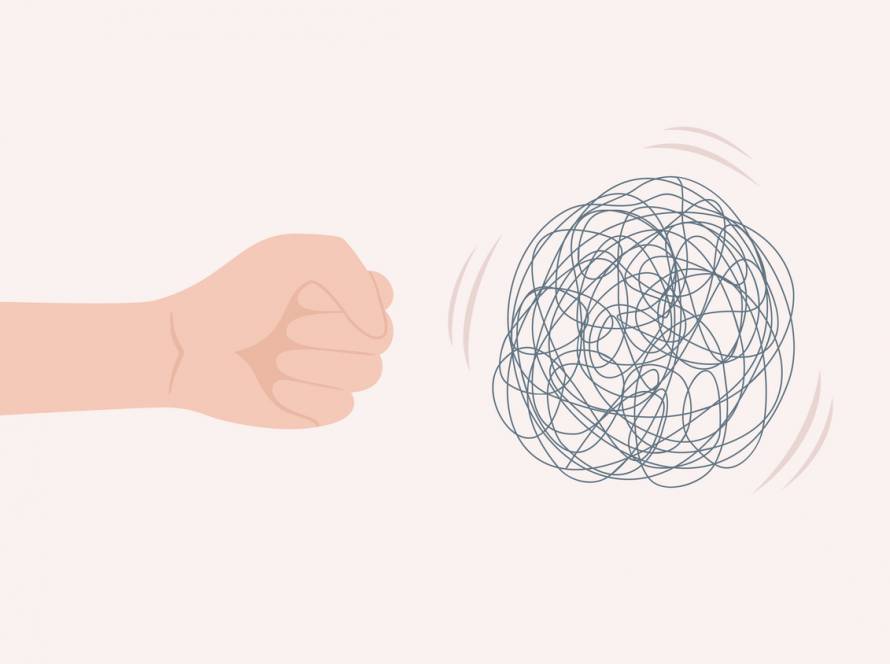What resources do you draw on to support your wellbeing? How are they working at the moment?
When I meet clients for the first time, they are often in a depleted state. They may be struggling with anxiety, depressed mood and low self-esteem which is dominating their thoughts, feelings and behaviours.
When we begin to explore how they cope, it’s often clear that the things they’re turning to for relief aren’t actually helpful. Some of these strategies may provide short-term comfort but leave them feeling more drained over time.
Depleting vs replenishing coping strategies
Some coping strategies may fall into the ‘numbing’ category. When you’re feeling overwhelmed, numbing activities can feel like they provide a break from the noise, some much-needed time out. Numbing activities might include scrolling social media feeds, lying on the sofa watching TV or endless checking messages.
These activities can quieten distress temporarily, but they don’t restore or nurture you. In contrast, replenishing activities can calm, ground, or energise you helping you feel more present and resourced to cope.
If self-esteem is low, coping strategies may include avoiding social activities, isolating at home or searching for evidence that your feelings are accurate, for example, comparing your appearance to other people’s Instagram accounts.
Or perhaps you are feeling low and choosing salty or sugary snacks rather than eating regular meals, or staying up late at night and struggling to get up in the morning.
Developing replenishing resources
Whatever they are, the coping strategies you’ve been drawing on have been serving a purpose. Part of my role as a counsellor is helping clients to shine a light on their coping strategies, why they choose them and whether they are having a beneficial impact.
Through developing a better understanding of the role of their coping strategies, we discuss whether they are replenishing or depleting.
The concept of what might be a replenishing resource to draw on can feel alien to begin with, especially if you have lost touch with how to feel to calm and nourished. These types of resources tend to have a nurturing impact. They are things you do that make you feel good, are beneficial to your wellbeing and help you to destress.
Psychologists sometimes describe replenishing activities as ones that promote ‘flow’, a state of focused engagement that allows the mind to rest from rumination 1.
Resource
Noun
1. A stock of assets that can be drawn on by a person in order to function effectively.
2. An action or strategy which may be adopted in adverse circumstances.
Rather than an activity that makes you feel numb, it could be helpful to find something enjoyable that requires concentration. For some people, activities that require use of their hands and following patterns help, such as knitting, doing a jigsaw or colouring-in books. Meanwhile for others, it could be an exercise class which allows them to focus on the routine they need to follow and gets the heart rate up. This means they have to concentrate on the steps and their breath and other thoughts take a break.
How to find what works for you
When you are thinking about activities or habits which could become part of your resource kit, I’d encourage you to take time to think about what you would really like to do. It’s important that your resources are the ones that work for you as an individual. It can be tempting to listen to what helps your friends or pick ideas you’ve read about in a magazine. Just because Pilates is what your friend swears by, or yoga is widely recommended, doesn’t mean it will resource you if you prefer to exercise outdoors or enjoy cardio.
Don’t be surprised if it takes time to find a selection of resources which works for you. You may need to road test a few before you find something that gives you benefit. The important thing I’ve found is to take your time. Pick something small to begin with and work on being consistent with it.
Thinking back to activities you used to enjoy, even as a child, might be helpful. Perhaps you’ve let something slip because you’ve not been feeling well. Bringing it back into your routine could quickly provide a beneficial lift. Also, consider if you’d like to do something with others or alone or a mixture of both.
Signs of a real resource
Signs of whether an activity is a real resource is if you feel a benefit of doing it or not. For example, I enjoy spending time near water. Ideally, this would be the sea but that’s not often possible so a walk by a river or stream – or even sometimes a bath or shower – can suffice. I’ve also learnt that going for a walk without my mobile phone is beneficial to me. That can be unthinkable for some people initially.
I find that a walk without my phone, is a chance for me to notice what’s going on around me, e.g. the colour of the sky, what’s changed since the last time I walked down this street or perhaps a chance to think about an idea I had the day before. Whilst a walk with my phone can trigger the urge to stop and check if I’ve had any messages or feel pressure to find something to photograph. The former is definitely a resource which I personally find calming and restorative. Whilst the latter is more likely to leave me feeling twitchy and wondering if I should share the photo with someone somewhere.
Building your personal resource kit
It’s also common – and totally understandable – that when you having a difficult week, the old coping strategies can kick back in. It can take time to shift your emphasis to things that resource you rather than drain you. This is part of the process of self-development as you spot old habits when they show up and choose to return to what supports you.
But over time, doing resources regularly that make you feel better, especially during stressful and busy times can bear fruit and actually add to your life, energy and focus so you can do more.
Figuring out what really should be in your ‘resource kit’ is one of the best gifts you can give yourself. Each time you choose something that replenishes rather than depletes, you strengthen your ability to resource yourself for daily life and cope more effectively when you experience stressful and challenging times.
1 Csikszentmihalyi, M. (1990). Flow: the psychology of optimal experience. Harper & Row.
2 Oxford University Press (n.d.). Resource. In Oxford Languages. [Retrieved from https://languages.oup.com/google-dictionary-en/ November 11, 2025]





